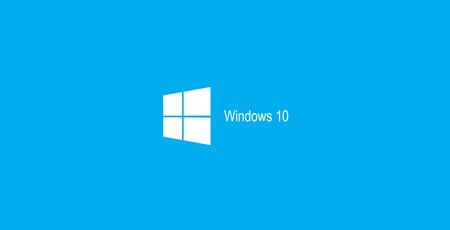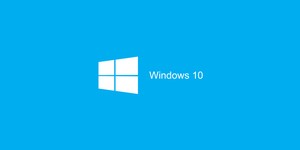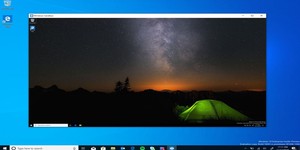
Microsoft has announced a plan to make Windows 10 updates install more reliably, and it's not going to be welcome news to those using low-end devices with limited storage space: The company will begin reserving at least 7GB of space for updates as well as caches and temporary files.
That Microsoft has been struggling with the process of keeping its Windows 10 operating system up to date is no secret, but its issues have largely stemmed through poor quality control processes rather than technical issues with delivery: Its most recent update, the Windows 10 October 2018 Update, was quickly removed from distribution due to a data-deleting bug which had been reported to the company months prior by Windows Insider beta testers, slid to early then not-so-early November, before yet more bugs were discovered which required it to be blocked from installation on selected hardware - and that's assuming your licence wasn't accidentally invalidated during the mishegoss.
Microsoft's latest change to the Windows Update ecosystem isn't about improving its clearly lax quality control processes, though, but rather ensuring that the updates can be installed once released - and to do so it's going to steal a bit of your storage space.
'Starting with the next major update we're making a few changes to how Windows 10 manages disk space. Through reserved storage, some disk space will be set aside to be used by updates, apps, temporary files, and system caches,' explains Microsoft's Jesse Rajwan on the company's Technet site. 'Our goal is to improve the day-to-day function of your PC by ensuring critical OS functions always have access to disk space. Without reserved storage, if a user almost fills up her or his storage, several Windows and application scenarios become unreliable. Windows and application scenarios may not work as expected if they need free space to function. With reserved storage, updates, apps, temporary files, and caches are less likely to take away from valuable free space and should continue to operate as expected.'
Microsoft's plan is to reserve at least 7GB, and potentially more, for these functions. During regular use, the reserved space will be used for caches and temporary files; when an operating system update comes along, though, these will be deleted so that Windows Update can make full use of the reserved space. This still doesn't guarantee that you'll have enough space, though: Rajwan warns that 'if for some reason Windows update needs more space than is reserved, it will automatically use other available free space,' which may even require the user to spread the files onto external storage devices.
While 7GB doesn't sound like much in the days of cheap 1TB hard drives, it's enough to have a potentially severe impact on low-end hardware - particularly devices which were upgraded from Windows 7 or Windows 8.1 to Windows 10 as part of Microsoft's free launch offer. With manufacturers receiving free Windows licences for devices with entry-level specifications, a flood of tablets with 16GB or 32GB of storage hit the market - meaning Microsoft is reserving over 40 percent and over 20 percent of their overall capacity respectively.
The company isn't alone in this approach, however: Most Linux distributions reserve around five percent of the overall storage capacity for use exclusively by the root user, equivalent to Windows' administrator accounts, to prevent the system crashing due to an unprivileged user filling a drive to capacity - though this can be adjusted or removed altogether if desired.
Microsoft has indicated that the reserved storage feature will be activated as standard on fresh installations of Windows 10 Version 1903, but will not be activated on systems upgraded from earlier releases.

MSI MPG Velox 100R Chassis Review
October 14 2021 | 15:04









Want to comment? Please log in.